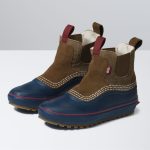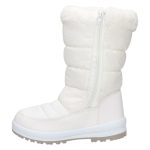Unlocking The Rain-Ready Potential: Discover Whether Snow Boots Are Good For Rain!
Are Snow Boots Good for Rain?
Greetings, Boots Enthusiast! Today, we will discuss an important topic that often confuses many people: are snow boots good for rain? As the seasons change and the weather becomes unpredictable, it’s crucial to choose the right footwear to stay dry and comfortable. In this article, we will delve into the qualities of snow boots and their suitability for rainy conditions.
Introduction
1. Understanding the Purpose of Snow Boots
1 Picture Gallery: Unlocking The Rain-Ready Potential: Discover Whether Snow Boots Are Good For Rain!
Snow boots are specially designed to provide insulation and traction on snowy and icy surfaces. They are typically waterproof and have thermal lining to keep your feet warm in cold temperatures. Many people wonder if these features make snow boots suitable for rainy weather as well.

Image Source: imgix.net
2. Exploring the Difference between Snow Boots and Rain Boots
Snow boots and rain boots serve different purposes. While snow boots are designed to withstand freezing temperatures and provide grip on slippery surfaces, rain boots are primarily made to keep your feet dry in wet conditions. Understanding this distinction is important when deciding which type of footwear to wear.
3. Considering the Waterproofing of Snow Boots
One of the main features of snow boots is their waterproof construction. They are typically made with materials such as rubber, leather, or synthetic fabrics that repel water. This makes them effective in keeping your feet dry during rainy weather as well.
4. Assessing the Traction of Snow Boots
Another important aspect of snow boots is their traction. The outsoles of these boots are designed with deep treads or lugs to provide excellent grip on slippery surfaces. This traction can also be beneficial when walking on wet and muddy terrain, making snow boots a good choice for rainy conditions.
5. Understanding the Insulation of Snow Boots
Many snow boots have insulation layers that keep your feet warm in freezing temperatures. While this feature may not be necessary in rainy weather, it does not hinder the performance of snow boots. As long as the boots are breathable, they can still be worn comfortably during rainy seasons.
6. Examining the Style and Versatility of Snow Boots
Snow boots come in a variety of styles, ranging from functional and rugged designs to more fashionable options. This versatility allows you to choose a pair that suits your personal style and can be worn in different weather conditions, including rain.
7. Taking Care of Snow Boots for Longevity
To ensure that your snow boots remain effective in both snow and rain, proper care and maintenance are essential. Regular cleaning and applying appropriate waterproofing treatments will extend the lifespan of your boots and enhance their performance in wet conditions.
What, Who, When, Where, Why, and How
1. What makes snow boots suitable for rain?
Snow boots’ waterproof construction and excellent traction make them suitable for rainy conditions. They keep your feet dry and provide grip on wet surfaces.
2. Who can benefit from wearing snow boots in the rain?
Anyone who wants to keep their feet dry and secure footing in rainy weather can benefit from wearing snow boots.
3. When should you wear snow boots in the rain?
Snow boots can be worn in the rain whenever you want to ensure dryness and stability. They are especially useful during heavy downpours or when walking on slippery surfaces.
4. Where can you wear snow boots in the rain?
Snow boots can be worn in various outdoor settings during rainy weather, such as hiking trails, urban streets, or even while running errands.
5. Why should you consider wearing snow boots in the rain?
Choosing snow boots for rainy weather provides added protection and comfort, as they are designed to withstand harsh conditions and keep your feet dry.
6. How should you choose the right snow boots for rain?
When selecting snow boots for rainy conditions, look for those with a waterproof construction, good traction, and suitable insulation for the temperature range you anticipate.
Advantages and Disadvantages
1. Advantages of wearing snow boots in the rain
a. Keeping your feet dry and protected from water
b. Providing excellent traction on wet surfaces
c. Offering insulation in case of cold rain
d. Versatile for various outdoor activities
2. Disadvantages of wearing snow boots in the rain
a. Can be warmer than necessary in mild rainy weather
b. Some styles may not be suitable for formal occasions
c. Require proper care and maintenance for longevity
d. May not provide as much breathability as dedicated rain boots
FAQs (Frequently Asked Questions)
1. Can I wear snow boots in heavy rain?
Yes, snow boots are designed to be waterproof and can protect your feet in heavy rain.
2. Are snow boots suitable for light rain?
Yes, snow boots can be worn in light rain as well to keep your feet dry and provide traction.
3. Should I wear thick socks with snow boots in the rain?
It depends on the temperature and your personal preference. Thicker socks can provide additional warmth, but make sure they do not make your feet uncomfortable.
4. Can I use snow boots as rain boots?
Snow boots can be used as rain boots if they have the necessary waterproofing and traction features.
5. How can I maintain the waterproofing of my snow boots?
Regularly clean your snow boots and apply waterproofing treatments recommended by the manufacturer to maintain their waterproof capabilities.
Conclusion
In conclusion, snow boots can be a good choice for rainy conditions due to their waterproof construction, excellent traction, and insulation. They offer advantages such as keeping your feet dry and providing stability on wet surfaces. However, it’s important to consider the temperature and choose a pair with suitable insulation. By taking care of your snow boots, they can serve you well in both snowy and rainy weather.
Take the necessary steps to maintain your snow boots and ensure their longevity. With the right care, they will continue to be reliable companions in various weather conditions. Stay dry, stay comfortable, and enjoy your outdoor adventures!
Final Remarks
Disclaimer: The information provided in this article is for informational purposes only. It is not intended to be a substitute for professional advice. Always consult a footwear specialist or trusted source for specific guidance on choosing the right boots for specific weather conditions.
This post topic: Boots



